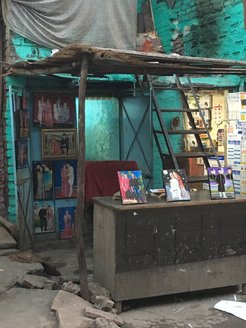Love and Labour in the City
Romantic Love and Delhi’s Workers, c. 1950s to the Present
Rukmini Barua

The early 1950s marked a watershed moment in Delhi’s history, ushering in rapid demographic, industrial and urban expansion. Taking this period as its starting point and the city’s working classes as its subject of inquiry, this project aims to write a history of romantic love in postcolonial Delhi. More precisely, it will examine the ways in which romantic feelings have been experienced, articulated and regulated, the production and transformation of romantic repertoires and the imbrication of gender relations in the everyday practices of love in the social milieu of Delhi’s working poor. I do so through a focus on three interrelated levels - the bodily dimensions of love, the spatiality of love, and the vocabularies of love. This study identifies romantic love as historically contingent and thus, a powerful lens with which to grasp the underlying cultural rhythms, social tensions and mediations. This approach would not only provide insights into the varying conceptualizations of love but also draw out the complex of feelings - desire, anxiety, fear, honour and shame - that are often interwoven in romantic relationships.
This project will deal with a cross section of working lives, across communities and social groups, including self-employed workers, hawkers, vendors, domestic labour, construction and industrial workers. I draw on a range of sources and methodologies - from an investigation of written sources, such as newspapers and forms of popular publications, judicial archives, personal documentary material to oral histories and ethnographic interviews from across workers’ neighbourhoods in Delhi.
